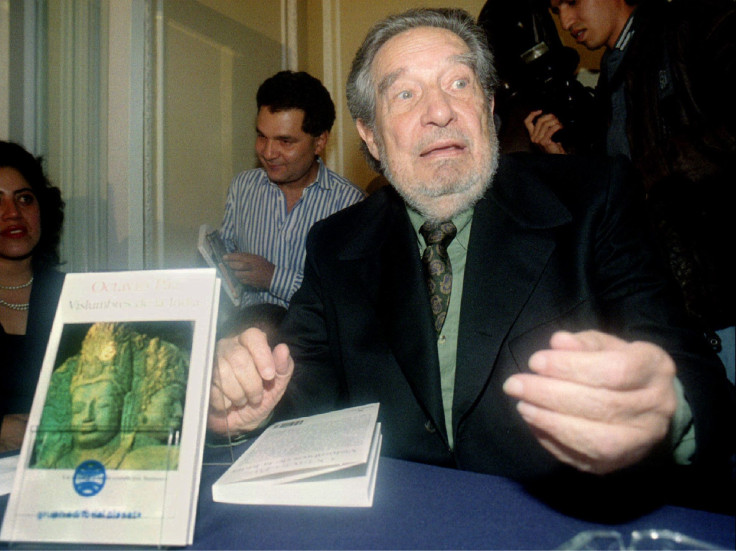
On Monday, March 31, Mexico commemorated the 100th birthday of Octavio Paz, the Nobel-Prize-winning poet, essayist and diplomat who was perhaps the country’s best-known intellectual figure upon his death in 1998 from cancer, only a day after the death of his daughter Helena Paz Garro. The Dallas Morning News notes that the government has organized a range of events in Paz’s honor which include presentations of his books, a stamp and lottery ticket bearing his face, a public reading of his poems outside of the Mexican Senate, the distribution of a free anthology to middle-school students, and a summit of intellectuals. Google also got in on the tribute; users in Mexico, Chile, Ecuador, Peru, Costa Rica, Venezuela and Spain were greeted with a “Doodle” homage to him.
Mexican historian Enrique Krauze wrote in the New York Times on Sunday that despite his official acclaim, Paz – a longtime attaché with the Institutional Revolutionary Party’s 70-year “perfect dictatorship”-- continues to arouse antipathy for his political views. “The intellectual wars that he fought so vigorously in life continue to be waged in his memory — which appears destined to never rest in the ‘peace’ that his name signifies,” writes Krauze. On Monday, Denise Dresser, Sergio Aguayo and Lorenzo Meyer, three of Mexico’s foremost current intellectuals, expressed admiration for Paz’s poetry in an interview with Aristegui Noticias, but pointed out that in spite of Paz’s turn against leftist dictatorships in the Soviet Union and Latin America, he kept close to the PRI throughout his life.
Born in Mexico City in 1914, one of Paz’s most enduring preoccupations was that of national identity. His most famous book, “The Labyrinth of Solitude”, described and plumbed Mexican custom, from popular representations of death to distinctive usages like “chingar” (“a scant change in tone or inflection and the meaning varies…the verb denotes violence, to lose control of oneself and penetrate another by force”). A year later, in 1951, he traveled to India for the first time as an embassy official; he would return in 1962 as an ambassador, and the country would show up as an influence in his later poetry and essay collections like “In Light of India”, published in 1997.
© 2025 Latin Times. All rights reserved. Do not reproduce without permission.





